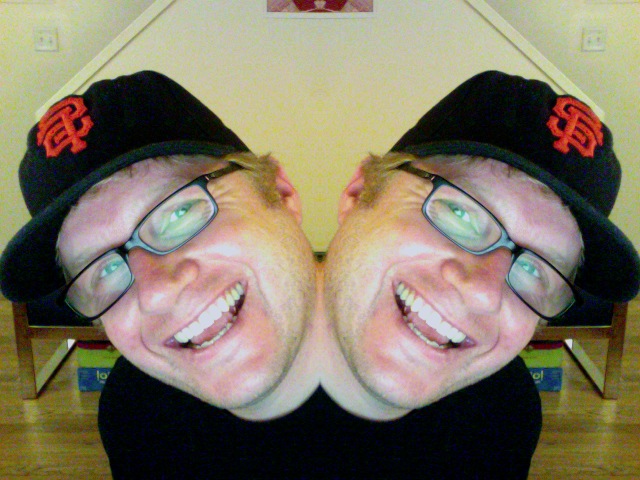When I left San Francisco and moved out East in 1980, it was like being forced to move away from my first love. I had devoted myself to the Giants for two years in 1978-1979, listening to most of their games on the radio (we didn’t have a TV), keeping score of many of them, keeping track of the player’s stats, collecting all their baseball cards. (Remember, I was twelve years old.)
But I stayed true to my team. Out in Brooklyn, I was relegated to seeing them twice a year—if I was lucky—when they came to New York to play the Mets. (If I tuned in the radio really well, I could sometimes catch their games on WPHT when they played the Philadelphia Phillies.) And the Giants being a West Coast team, most of their games took place long after I had gone to sleep; their box scores never even made it into the sports pages of the New York Times.(I’m sure I don’t have to remind you that this was long before the Internet, or even the late-night scores published each morning in USA Today.) In New York the San Francisco Giants were completely irrelevant.
Also, the Giants were a bad team—in the first five years I lived in New York, they had a losing record three times, and barely squeaked over .500 the other two. (They had similar half-decade-long dry spells from 1991–1996 and 2005–2008.) When they did play well for a whole season, they specialized in losing in heartbreaking fashion in the playoffs: their 1987 breakdown against the Cardinals in the NLCS; their 1989 4-0 dismissal by the A’s in the Earthquake Series; their 2002 meltdown against the Angels. (Still hard to talk about that one.)
Until their 2010 championship, the Giants were very much under the radar. Of course there was all the hype about Barry Bonds, but for the most part that was about celebrating individual achievements (achievements that now seem very tainted). Despite it all, through those teenage years in New York, then college in Ohio, traveling and living abroad, and four years in Chicago, I kept the faith. Fate would have it that I was able to return to my team in the late 1990s, when Sari & lived in San Francisco. Those were special years, though the team didn’t fare particularly well then either. But then it was on the road again, and the last dozen years in New York again (and now a year in Ann Arbor).
Essentially, the Giants have mostly seemed like my own little secret. That’s why, even now, it’s especially weird to see the team being covered by the national media, the Times, etc.


